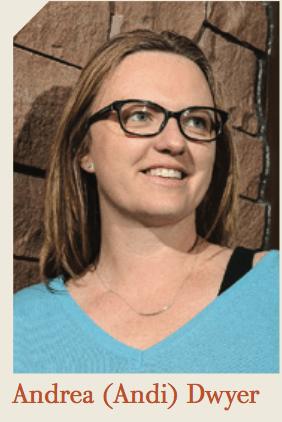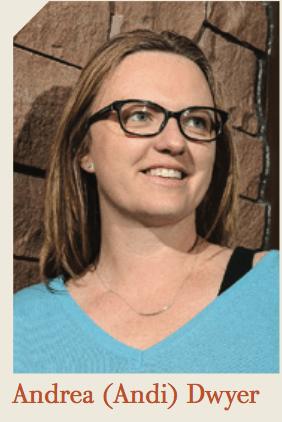
Credit: University of Colorado Cancer Center
The American Cancer Society (ACS) and other preventive guideline organizations recommend that screening for colorectal cancer start for people of average risk at age 50. However, new data showing rising colorectal cancer incidence in people younger than 50 – and in some cases much younger than 50 – may argue for an earlier start to screening. A study published today the journal Cancer adds this new data to the model used as a basis for the ACS guidelines, showing what it calls a "favorable balance between screening benefits and burden" with screening starting at age 45, five years younger than currently recommended for both men and women of all races and ethnicities.
"Moving the start of screening back to age 45 for the average risk population is a considerable change," says Andrea (Andi) Dwyer, director of the Colorado Colorectal Screening Program at the University of Colorado Cancer Center and program director at the Colorado School of Public Health. "If everyone followed screening recommendations based on risk, we could cut colorectal cancer mortality by at least a half, with some estimates suggesting mortality would be cut up to 70 percent," she says. Dwyer is a co-author of the Cancer paper and works collaboratively with the organization Fight Colorectal Cancer.
Every year in the United States, about 140,000 new cases of colorectal cancer will be diagnosed and over 50,000 Americans will die from the disease. Worldwide, almost 850,000 people will die of colorectal cancer annually.
Because it is nearly impossible to ask large cohorts of people to start colorectal cancer screening at different ages and then follow the outcomes of these cohorts, determining the best age to start and stop screening, and the optimal frequency of screening, depends on sophisticated mathematical models. There are two common models, SimCRC (a collaboration between the University of Minnesota and Massachusetts General Hospital) and MISCAN (by Memorial Sloan-Kettering in New York City and Erasmus, MC in the Netherlands).
The current study worked with the MISCAN model, adjusting the lifetime incidence of colorectal cancer to reflect the most current data, which includes higher incidence younger in the lifespan. The study then compared screening strategies starting at ages 40, 45 and 50 and stopping at ages 75, 80 and 85. The goal was to discover how many years of life were gained per colonoscopy.
"Think of it this way," Dwyer says, "if screening started at age 20, you'd have maximum benefit but also a huge burden. It would be inefficient – we would find very few cases of cancer per colonoscopy. On the other hand, if screening started at age 60, you'd have minimal burden but also minimal benefit – we would be missing some cancers and finding others too late. The goal of screening guidelines is to find that sweet spot where there is the most benefit with the least burden."
With new data, the MISCAN model finds the highest ratio of benefit-to-burden with colonoscopy screenings every 10 years starting at age 45 and ending at age 75.
Of course, the implications of increasing colorectal cancer incidence among young people go beyond the need for adjusted screening recommendations. Perhaps an even bigger question is why incidence in this population is increasing in the first place.
"We used to think that young colorectal cancer was genetically different than the disease found in older patients. But now we're finding this might not always be the case. It's showing up younger and no one knows why," Dwyer says. "Researchers have explored the usual things – obesity, tobacco, alcohol – but none of those fully explain the increase. Now people are examining anything they can think of that could influence this early risk – sugar, tap water, lifestyle, even the microbiome. I think there's something very different for a 65-year-old who gets it versus a 25-year-old who gets it, but right now we just don't know what that thing is."
Finding the factor or factors driving the development of colorectal cancer in young patients could be key in preventing the disease. Until then, Dwyer and colleagues offer the current recommendations with the intention of optimizing screening to find these cancers, even in younger patients, early enough to offer successful treatments.
###
Media Contact
Garth Sundem
[email protected]
@CUAnschutz
http://www.ucdenver.edu
Original Source
http://www.coloradocancerblogs.org/as-colorectal-cancer-rises-in-young-people-new-guidelines-recommend-screening-start-at-45/ http://dx.doi.org/10.1002/cncr.31543





